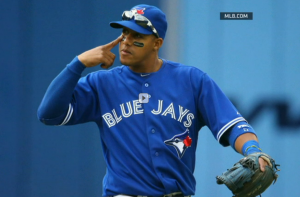Sports, Masculinity, Lazy Language, and the (News) Cycle of “Progress”


Shortstop of the Toronto Bluejays Yunel Escobar was suspended by his team for three games today for playing with “Tu Ere Maricon” written in his eyeblack. It’s great that the Bluejays took public action to discipline Escobar, but his own apology speaks to a level of continued ignorance: “I don’t have anything against homosexuals. I have friends who are gay…” Then in direct reference to the word Maricon, “It’s a word used often within teams…it’s uh, as uh, it’s a word without meaning in the way [I] used it.”

This coming off the anonymous Fluter Online Magazine interview last week with one of Germany’s leading Bundesliga soccer superstars who says that he is gay but afraid to come out (English coverage of the article in Der Spiegel Online here). The player is apparently out to teammates and team brass, all of whom he says have no problem with his sexuality. But he has a fear of the media frenzy coming out might ignite and the reaction of fans. Some select quotes: “I have to put on a show and deny my true identity every day…I don’t know whether I will be able to take the constant tension between the model heterosexual player and the possible discovery, until the end of my career.” All this told to a 25-year-old reporter for publication in Fluter which is youth magazine published by the Federal Agency for Civic Education.
Bundesliga officials and even German Chancellor Angela Merkel chimed in on the interview, on a weekend where ironically, all soccer players donned jerseys reading “Geh Deinen Weg” (Go your own way) as part of a campaign to promote soccer as a means of transcending religious and racial intolerance. Merkel told press, “He lives in a country in which he need have no fear of outing himself publicly…We have to acknowledge there are still fears when it comes to the social environment [in football]. We can only give a signal: You need not fear.”
Meanwhile in U.S. NFL football, a storyline of another sort plays out as a Maryland state delegate Emmet C. Burns’s attempt to censure Baltimore Ravens linebacker Brendon Ayanbadejo for supporting a gay marriage proposition on the state ballot backfired, making both Avanbadejo and Minnesota Vikings player Chris Kluwe (who posted a colorful open letter to Burns in defense of gay marriage and free speech) internet heroes of the week.
These stories coming in such close succession after an Olympics in which the number of out athletes was a marked topic of media conversation (only 23 of over 10,00o competitors and only 4 of them male were out at the games), seem like revamped headlines to old news. In May of this year former Redskin player LaVar Arrington said in a radio interview that the first active NFL player to come out would be a “national hero.” Granted he was already retired at the time, but it is sobering to remember former NFL player Dave Kopay came out in Lynn Rosellini’s Washington Star cover story way back in 1975…
What do yo think? Do these three incidents speak to progress and substantive discourse, or are we simply going round and round in mediated cycles of progress and prudery?